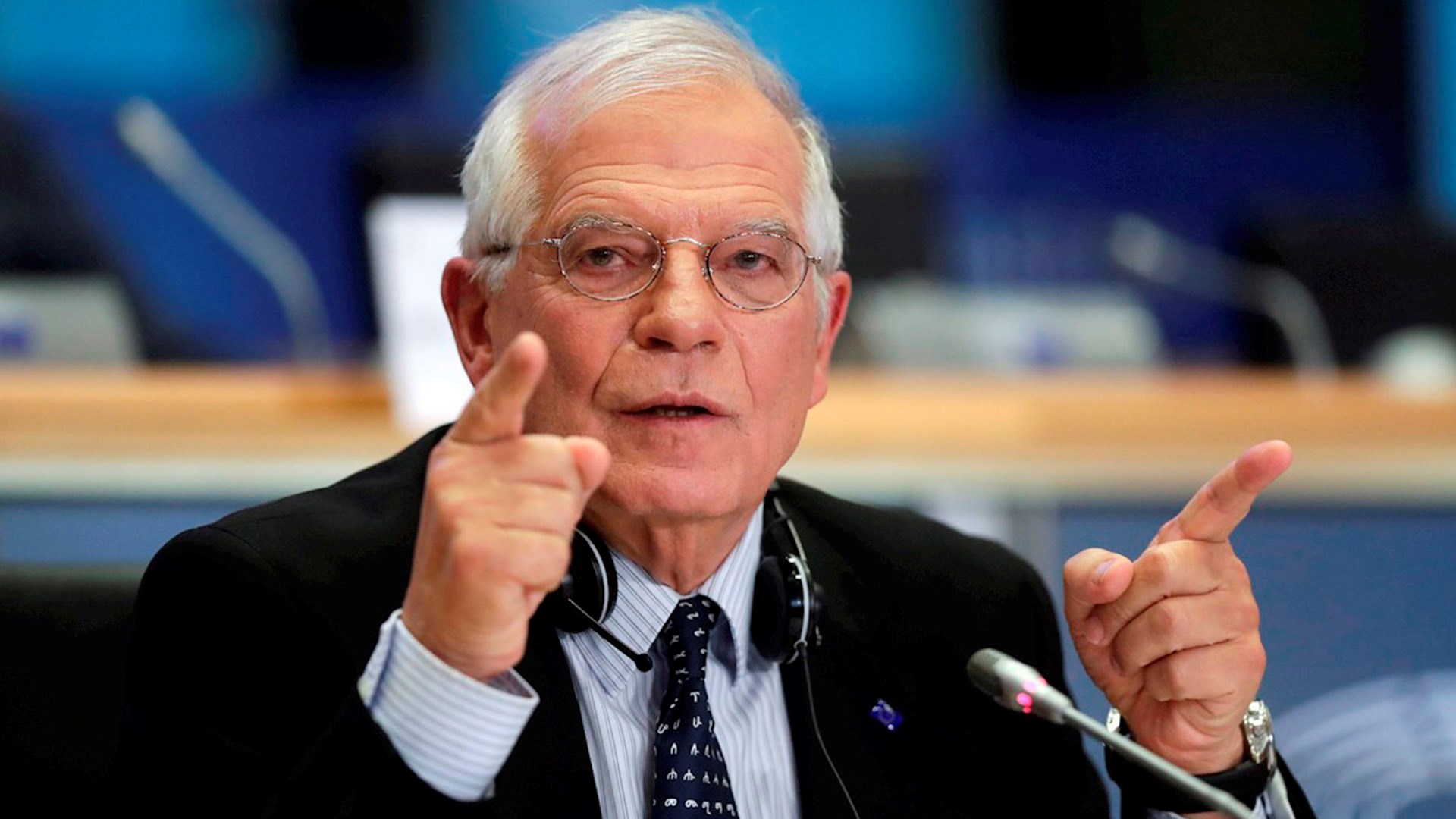EU to provide over $500 million to buy arms for Ukraine
The West is intensifying support to Ukraine in terms of arms, with the latest move coming from the European Union.
-

EU foreign policy Chief Josep Borrell
European Union members states agreed Sunday to allocate more than $500 million for members to buy arms for Ukraine, foreign policy chief Josep Borrell said.
The 27-nation bloc is not the first entity to supply arms to Ukraine, and despite Hungary earlier refusing to send arms to Kiev, Swedish Prime Minister Magdalena Andersson announced that her country would break its doctrine of not sending arms to countries in "conflict" and send military equipment, including anti-tank launchers, to Ukraine.
"Sweden is now proposing direct support for Ukraine's armed forces. It includes 135,000 field rations, 5,000 helmets, 5,000 body shields, and 5,000 anti-tank weapons" Andersson told reporters.
NATO also went along with the decision of arming Kiev, pledging to escalate its military deliveries to Ukraine despite Kiev not being part of the alliance. The deliveries will include anti-tank and anti-aircraft systems and ammunition to Ukraine, NATO Chief Jens Stoltenberg said Sunday.
The Defense Minister of the Czech Republic, Jana Cernochova, announced Saturday that Prague would provide Ukraine with $8.6 million in military equipment as well. Canada also joined the race and sent lethal weapons and transport aircraft to Ukraine.
The EU measure was part of a wide-ranging package of support and sanctions that received consensus from the member states. Borrell said they also formally approved a move to ban any transactions with the Russian Central Bank.
The European bloc's top diplomat also said Brussels would provide European-funded fighter jets to Ukraine.
"We're going to provide even fighting jets. We're not talking about just ammunition. We are providing more important arms to go to a war," he told a press conference.
Ukrainian Foreign Minister Dmytro Kuleba had told the EU "they need the kind of fighting jets that the Ukrainian army is able to operate... some member states have these kinds of planes," Borrell said.
Russia had for months been warning of the threat posed against it by NATO's attempts to expand eastward, which happened simultaneously with an increase in NATO military activity along Russia's borders, and batches of lethal weapons being sent to Ukraine, prompting Russia to request security guarantees from the West. Washington failed to provide the guarantees.
After the West did not respond to Russia's demands, and amid Ukrainian shelling on the Donetsk and Lugansk People's Republics, President Vladimir Putin initiated a special military operation in Donbass.

 3 Min Read
3 Min Read









